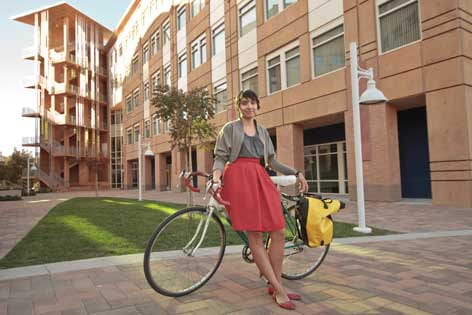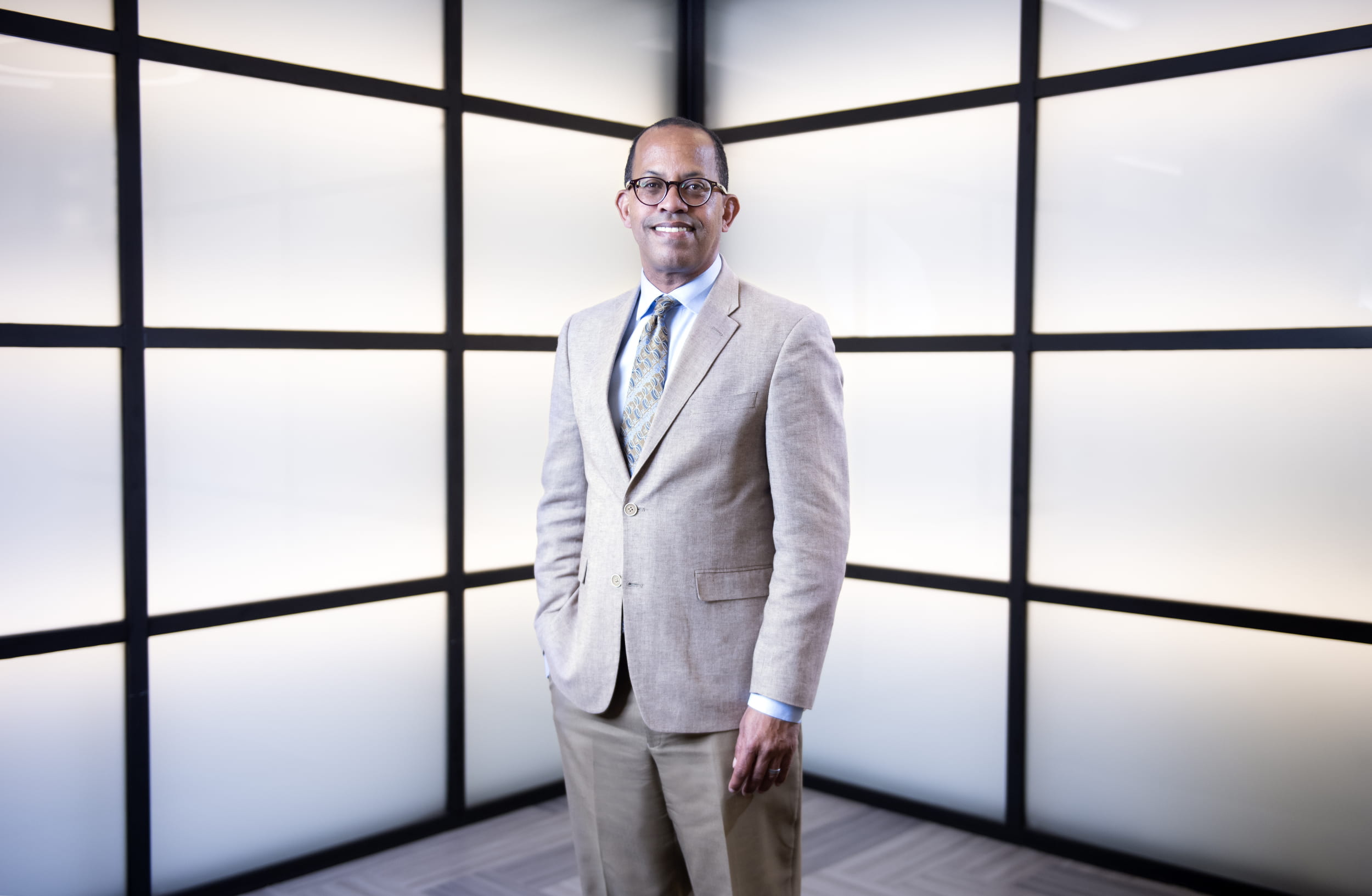Changing the rules of the road
Exploring alternatives to vehicle travel in Southern California becomes challenging social and research experiment for anthropology grad student who gave up her car three years ago.

Adonia Lugo dreams of a day when bicyclists and motorists comfortably share the streets of Southern California. She has dedicated much of her academic and personal life to alternative transportation.
A UC Irvine anthropology doctoral student, Lugo uses buses, trains and a bike to commute between school and her Los Angeles home. She researches how people relate to their environments and alternative-transportation movements, with a focus on urban cycling.
“There’s a very strong bias against non-car travel in Southern California,” Lugo says. “Honking and shouting by drivers can be intimidating, but knowing your rights as a cyclist and safe riding skills can help build confidence on the road.”
Bicycling, she notes, improves people’s health and fitness, does not pollute the environment and fosters social interaction in a way not possible when drivers are cocooned inside motor vehicles.
Lugo co-founded cicLAvia, a coalition of bicycling advocates, artists and academics who propose that motor vehicles be intermittently banned from certain streets in Los Angeles. The group was inspired by the ciclovía (bike path) culture of Bogotá, Colombia, where major thoroughfares are closed to car traffic on Sundays and opened to pedestrians, cyclists, street performers and vendors.
As a member of the Los Angeles County Bicycle Coalition, Lugo also has worked on the Ciudad de Luces/City of Lights project, which has given more than 500 bike lights to low-income riders. In addition, it trains mostly immigrant laborers in bike mechanics and safe cycling techniques.
Growing up in San Juan Capistrano, Lugo never thought she would replace her car with a secondhand road bike. A move to Portland, Ore., as a college undergrad changed her perspective. The city’s bike-friendly streets, trails and ubiquitous signage made cycling a fun and healthy alternative to driving. Lugo eventually sold her car and has been vehicle-free for three years.
“When I moved back to Southern California, I became a bit radicalized,” she says of her zeal to promote cycling in an area known for busy car traffic. “I was disappointed and frustrated by all the impediments to bike riding here.”
Lugo views her activist and academic pursuits as complementary. She credits UCI’s Community Scholars Program for supporting her and research with significant social impact. CSP encourages students to collaborate with community organizations on public policy issues.
Program director Victor Becerra describes Lugo’s work as a form of “intellectual entrepreneurship.”
“It’s original, exciting and an excellent example of research as social innovation,” he says. “Adonia recognizes the value of her scholarly endeavors and has bold yet attainable goals.”



